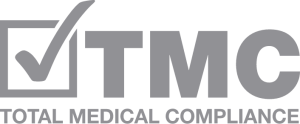When a minor becomes an adult, they become the owner of their medical record. Here are a couple of things to consider: When does a minor become an adult; What does the practice need to do to ensure proper handling of the record according to HIPAA.
A minor can become an adult in several ways.
Tax law often creates an area of confusion. A person who is 18 – 23 years old may still be considered a dependent of the parents if they are in school. This does not change the fact that they are considered an adult and fully in control of their records and treatment.
When your patient becomes an adult, several things need to happen.
Provide them with a Notice of Privacy Practices and get them to sign any HIPAA authorizations needed. All contracts are now the responsibility of the new adult and any old authorizations, restrictions, and access requests are no longer in effect. Be sure to have this conversation with the new adult alone even if they are accompanied by a parent. This can prevent getting the practice involved in potentially volatile or embarrassing situations.
Here are some frequently asked questions.
Do the parents of the new adult still have any rights or access to the patient’s information? No, unless authorized by the new adult.
Can the parent still accompany the new adult? Yes. Anyone can accompany any patient. HIPAA considers that the patient’s consent is implied in this circumstance.
Can the parent still take financial responsibility for the new adult? Yes. Anyone can pay but the ultimate responsibility is with the new adult as it is with any other patient.
Can the parent still make appointments for the new adult? Yes. Once again, anyone can make an appointment unless your practice has a policy against it.
Can the parent still confirm appointments? This is a little more complicated. If they call and have all the information, then yes, you can confirm. If someone calls and says I need to know when Mr. X has his next appointment, I advise caution. The key is not to give out protected information.
TMC HIPAA service clients are encouraged to call Client Services if you need help on this or other HIPAA issues at 1-888-862-6742 or e-mail your question to Service@TotalMedicalCompliance.com.

Total Medical Compliance
6124 Creft Circle
Indian Trail, NC 28079
Phone: (888) 862-6742
Fax: (866) 875-3809
©2023 Total Medical Compliance

Total Medical Compliance
6124 Creft Circle
Indian Trail, NC 28079
(888) 862-6742
Fax (866) 875-3809
©2022 Total Medical Compliance